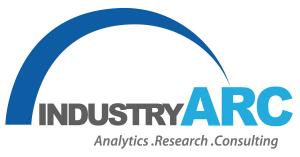
The automotive connector market is experiencing growth due to the increasing demand for advanced electronics in vehicles, including infotainment systems, ADAS features, and electric vehicle components. As automotive technology evolves, there’s a greater need for reliable connectivity solutions, driving the expansion of the connector market to meet these demands and ensure seamless integration of various vehicle systems.
Automotive Connector Market size is estimated to reach $6.42 billion by 2030, growing at a CAGR of 4.60% over the forecast period 2023-2030.The automotive connector market plays a crucial role in modern vehicle technology, facilitating the seamless integration of various electronic systems. With the proliferation of electric vehicles (EVs), autonomous driving technologies, and advanced infotainment systems, the demand for reliable and high-performance connectors is escalating. These connectors ensure efficient communication between components such as sensors, actuators, control units, and power sources. Key trends driving market growth include the increasing adoption of connected cars, stringent safety and emission regulations, and the rise of electric and hybrid vehicles. Additionally, advancements in connector designs, such as miniaturization and high-speed data transmission capabilities, are enhancing performance and reliability. Major players in the automotive connector market include TE Connectivity, Amphenol Corporation, Yazaki Corporation, and Delphi Technologies, among others. This dynamic landscape is expected to witness sustained growth as automotive technology continues to evolve.
Automotive ConnectorMarketCurrent and Future Trends:
Electrification of Vehicles: With the increasing adoption of electric vehicles (EVs), there’s a growing demand for high-voltage connectors to handle the power requirements. These connectors need to be efficient, reliable, and capable of handling high currents.
Advanced Driver Assistance Systems (ADAS): The proliferation of ADAS technologies like collision avoidance systems, adaptive cruise control, and lane departure warning systems require sophisticated connectors to facilitate data transfer between various components such as sensors, cameras, and control units.
Connected Vehicles: The rise of connected vehicles necessitates robust connectors for in-vehicle infotainment systems, telematics, and communication modules. These connectors enable data exchange between the vehicle and external networks, such as GPS, cellular networks, and the internet.
Autonomous Vehicles (AVs): AVs rely heavily on sensors, processors, and communication systems for navigation and decision-making. As AV technology advances, connectors capable of handling the high-speed data transmission and complex networking requirements will be in demand.
Miniaturization and Lightweight Design: Manufacturers are continuously striving to reduce the size and weight of automotive components to improve fuel efficiency and performance. This trend drives the development of compact and lightweight connectors without compromising on performance and durability.
Increased Focus on Reliability and Durability: Automotive connectors must withstand harsh environmental conditions, including temperature extremes, moisture, vibration, and mechanical stress. There’s a growing emphasis on connectors with enhanced reliability and durability to ensure uninterrupted operation over the vehicle’s lifespan.
Browse Table of Contents of the Full report:
www.industryarc.com/Report/19301/automotive-connector-market.html
Automotive ConnectorMarket Report – Scope:
The Automotive ConnectorMarket has been segmented By System, Vehicle, Applicationand geography. The report provides insights into the market dynamics, including market drivers and challenges.
Automotive Connector Market with top country data and analysis. The report also highlights the market potential, growth rates, and alternative relevant statistics.
The competitive landscape section features company profiles of major players such as Aptiv, Molex, and Japan Aviation Electronics Industry. This report is a valuable source of guidance and direction for companies and individuals interested in the Automotive Connectormarket.
Request a sample for the report: https://www.industryarc.com/pdfdownload.php?id=19301
The top players in the Automotive Connectorindustry are:
- Aptiv
- Molex
- Japan Aviation Electronics Industry
- Sumitomo Electric Industries
- TE Connectivity
- Yazaki
- Amphenol Corporation
- S.T. Mfg. Co. Ltd
- Delphi Technologies
Follow the Link to Buy the latest Market Study on Automotive Connector:
https://www.industryarc.com/purchasereport.php?id=19301
Browse More Trending Reports related to Automotive Connector Industry By IndustryARC:
- I/O Connector Marketis forecast to reach $8.5 billion by 2025, growing at a CAGR 13.4% from 2020 to 2025.
- 5G Connector Marketsize is forecast to reach $3.58 billion by 2025 growing at a CAGR of 9.5% during 2020-2025.
- Industrial Connectors Marketsize was valued at $5.3 billion in 2020, and it is estimated to grow at a CAGR of 6.9% during 2021-2026.
Why Choose IndustryARC?
IndustryARC is one of the leading market research and consulting firms in the world. It produces over 500 unique market reports annually. If you are looking for a detailed overview of a particular market, you can simply connect with the team at IndustryARC. You can not only buy your preferred market report from the website, but also get personalized assistance on specific reports.
Contact Us:
Mr. Venkat Reddy
IndustryARC
Email: [email protected]
USA: (+1) 518 282 4727
Web: https://www.industryarc.com
Follow us on: LinkedIn | Facebook | Twitter
Contact Information:
Mr. Venkat Reddy IndustryARC Email: [email protected] USA: (+1) 518 282 4727
Tags:
BNN, Extended Distribution, iCN Internal Distribution, Research Newswire, English

